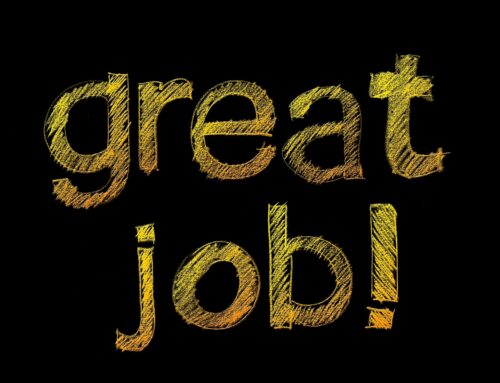What’s next on your bucket list professionally? Do you ever think of starting your own business or joining a startup? Working for a new enterprise can be exhilarating, especially when you prepare yourself. How do you do that? By surrendering to the fact that growth requires change, so nothing stays the same, and recognizing opportunities to be better, even if you have to quickly override your own decisions. When a business starts at ground zero, initial growth is exponential, requiring resilience and constant adaptation to the demands of it. Before doing it, I recommend a hard-nosed, clear-eyed assessment of your life and whether or not it’s a good time to jump in as well as an evaluation of the potential benefits.
In 2008, I joined the Pennsylvania Office of Open Records (OOR), a brand-new commonwealth agency created to implement and enforce the new Right-to-Know law. The OOR was a start-up agency with nothing in place except a new law that would take years to solidify through the appellate process. We had no time to spare in creating a full-fledged agency, statutorily required to set policy, receive and docket appeals, hire appeals officers to decide cases, and create systems for docketing and maintaining appeal files. Oh, and we also needed permanent office space, furniture, supplies, and equipment.
Our new agency was an anomaly in the commonwealth system and there were many dust-ups with the administration, which added to the tasks and toll of building our office. The executive director and deputy director traveled from one end of Pennsylvania to the other training public officials and employees while overseeing the creation of an agency unlike any other. Among many battles, we fought to define our role in the appellate courts which, to this day, struggle with the status of the OOR within the commonwealth system as we saw when Gov. Tom Wolf challenged Gov. Tom Corbett’s appointment of an executive director at the end of his term.
I was no stranger to startups. One of my first jobs in college was in a new restaurant and, just prior to the OOR, I created an in-house legal department for a school district that had always relied solely on outside solicitors.
The birth of a new entity takes tremendous time and effort. At the OOR, we had dozens of appeals due every week and our early interpretations of this law carried long-term implications. We felt the eyes of the public, the press, and the politicians on us every day. I am proud to say that I had some successes (the Pennsylvania Supreme Court affirmed a decision I wrote) and some not-so-stellar moments (when the appellate courts reversed me). The case load was intense and my work-life balance suffered from long hours. But, that comes with the territory of being there at the inception, when the sands shift constantly. Despite obstacles, or perhaps because of them, we at the OOR all felt a sense of camaraderie in our efforts, shared unforgettable moments, and had laughing fits over some of the more creative and outrageous correspondence we received. As Charles Dickens wrote, “It was the best of times, it was the worst of times …”
One always has a choice to leave a situation where the hours are too long and interfere with self-care, home care, relationship care, car care, and so on. If you just started a family, it might not be the time for a job that requires 24/7 access. But sometimes a relatively short-term sacrifice can yield long-term or even permanent benefits and you always want to factor that in before you make a decision. I would not trade my experience at the OOR for anything. Along with those long hours came enormous opportunities and the satisfaction of doing a job that really matters to people—protecting the right to see records of their government.
Professionally, I helped shape a law. As the agency responsible for issuing advisory opinions and administering an appeals process, we needed to add flesh to the skeleton and as much muscle as we could build while avoiding any mandatory diets the courts could impose.
I was part of the decision-making process that created foundations still standing at the OOR today. If I made a list of all decisions made, it would take a long time and some would no doubt elude me. Everything from what our decisions would look like to what color furniture to order was under consideration. The executive director made these decisions, but in a small office one has a better chance of being influential and is inevitably closer to the seat of power because there aren’t many layers between you.
By the end, I ran the legal side of the OOR as its chief counsel and argued before the Pennsylvania Supreme and Commonwealth courts. In each instance, the opposing lawyers may have had more experience, but no one knew this law better because we grew up together. Starting in 2008, I read that law over and over again, parsing out the paragraphs, sentences, nouns, verbs, and conjunctions. We scrutinized the law like scholars study the Torah. By the time we got to the Supreme Court, we were intimately acquainted. It is a great opportunity to be an expert in a niche area and any prospect promising that is worth considering as a factor.
There are intangible benefits, too. When you create something in concert with others, a long-standing bond forms, a shared history full of rich, fantastic, terrible and hilarious stories that you love to tell each other, even though you all know them, because you lived through them together. You were there. As the enterprise grows, there is a sense of satisfaction in knowing that.
Being part of a startup is exciting, challenging and exhausting. The reward is exponential personal and professional growth. There can be opportunities to reach above your title and pay grade and more chances to make an impact as part of a small band of compatriots building a new enterprise than in a more established office.
When I decided to start my own coaching business, skills, information and experience I gained at the OOR began to spring to the forefront as I contemplated everything from billing and bookkeeping, to marketing my services to potential clients. I hired a coach to work with me as I transitioned from working full time for a paycheck, as I had done my entire career, to being a “solopreneur.” I wanted help managing change effectively and someone who would listen to my fears, help me step around them and move forward. Most importantly, I wanted to accelerate progress.
Working with a coach was instrumental. She was an anchor, thought partner and someone to whom I was accountable in specific, measurable ways. I set big goals and challenged myself at the beginning to create momentum, and set the tone for how I wanted my practice to be. It may seem counterintuitive to hire a coach when you’ve left your full-time job and are facing an income gap while you generate enough work to fill your schedule, but it kept me on track in a way that I could not have achieved alone.
A startup calls forth all of the strengths you have spent your life developing as well as tapping into new ones. If the time and opportunity are right, it can be the best work you’ll ever do.
Reprinted with permission from the September 21, 2016 edition of “The Legal Intelligencer” © 2016 ALM Media Properties, LLC. All rights reserved. Further duplication without permission is prohibited. For information, contact 877-257-3382, reprints@alm.com or visit www.almreprints.com.







